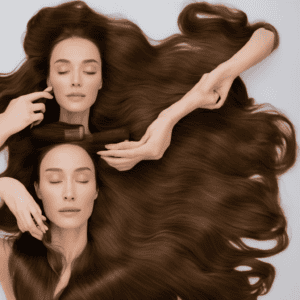You’re considering jojoba and batana oil for your natural hair care routine, but which one is best for you? Both oils are rich in antioxidants and vitamins, but their unique compositions impact their performance on hair. Jojoba oil deeply penetrates the hair shaft for long-lasting hydration, while batana oil locks in moisture and reduces frizz. Understanding their differences will help you choose the right oil for your hair type. Dive into the world of jojoba and batana oil, and you’ll uncover the secrets to achieving healthy, vibrant locks that turn heads.
Jojoba Oil: A Closer Look
As you delve into the world of natural hair care, you’ll likely come across jojoba oil, a popular choice among hair enthusiasts that’s often touted as a miracle worker for its ability to moisturize, nourish, and protect your locks.
This oil is extracted from the seeds of the jojoba plant, which is native to the deserts of southern Arizona, southern California, and northwestern Mexico. Jojoba oil is rich in antioxidants and has a unique molecular structure that allows for easy oil absorption into your hair shaft, making it an excellent choice for promoting healthy hair growth.
It’s also rich in vitamins A, D, and E, which help to nourish and protect your hair from damage. By using jojoba oil, you can expect to see improvements in hair growth, as it provides essential nutrients and hydration to your hair follicles.
Additionally, jojoba oil’s moisturizing properties help to lock in moisture, reducing frizz and flyaways, leaving your hair looking healthy, shiny, and vibrant.
Batana Oil: Uncovering Its Secrets
You’re likely to stumble upon batana oil, a lesser-known yet potent natural hair oil, as you explore the world of hair care, and you’ll wonder what secrets it holds for your tresses.
As you delve deeper, you’ll discover that batana oil originates from the fruit of the batana palm tree, native to the tropical regions of Central and South America. The sourcing of batana oil is often tied to local communities, where it’s harvested and extracted using traditional methods. This cultural significance is reflected in the importance of batana oil in traditional medicine and beauty practices.
In some regions, batana oil is revered for its nourishing properties, used to moisturize and protect the skin and hair. You might be surprised to learn that batana oil has been a staple in many indigenous communities for generations, with its uses extending beyond hair care to include medicinal and spiritual practices.
As you explore batana oil further, you’ll uncover a rich cultural heritage that’s woven into the fabric of its production and use.
Composition Comparison: The Difference
One key aspect to understanding the differences between jojoba and batana oil lies in their distinct compositions. You might be surprised to learn that these natural hair oils have unique fatty acid profiles, which significantly impact their performance on your locks.
Jojoba oil, for instance, is predominantly composed of monounsaturated fatty acids, primarily oleic acid (up to 70%). This means jojoba oil is rich in omega-9 fatty acids, making it an excellent moisturizer.
In contrast, batana oil boasts a distinct triglyceride structure, featuring a higher concentration of polyunsaturated fatty acids, mainly linoleic acid (around 40%). This difference in fatty acid profiles gives batana oil its unique benefits, such as enhanced nourishment and protection for your hair.
When you understand these compositional differences, you can make a more informed decision about which oil is best suited for your hair type and needs. By grasping the nuances of jojoba and batana oil’s compositions, you’ll be better equipped to unlock their full potential for gorgeous, healthy-looking hair.
Moisturizing Power: Jojoba Vs Batana
Your hair’s moisture levels are about to get a boost, thanks to the moisturizing prowess of jojoba and batana oil. These natural wonders are packed with hydrating benefits that’ll leave your locks feeling soft, supple, and utterly pampered.
Jojoba oil, in particular, is renowned for its exceptional moisturizing properties, which allow it to deeply penetrate the hair shaft, providing long-lasting hydration. This, in turn, enhances nutrient absorption, ensuring your hair receives the essential vitamins and minerals it needs to thrive.
Batana oil, on the other hand, boasts an impressive fatty acid profile, which helps lock in moisture, reducing frizz and flyaways. As you massage either oil into your scalp, you’ll notice a significant improvement in manageability, with tangles and knots becoming a thing of the past.
Whether you’re battling dryness, brittleness, or breakage, jojoba and batana oil are the ultimate moisturizing duo to revitalize your hair’s natural health and shine.
Styling and Protection: A Head-to-Head
As you style your hair, the real test of jojoba and batana oil’s benefits begins, with their protective properties put to the task of defending your locks against heat, UV damage, and environmental stressors. You’ll notice that jojoba oil provides a lightweight, non-greasy barrier that won’t weigh down your hair, making it ideal for fine or oily hair textures. Batana oil, on the other hand, offers a richer, more nourishing experience that’s better suited for dry or damaged hair.
When it comes to styling challenges, jojoba oil’s lightweight formula makes it easier to distribute heat evenly, reducing the risk of hot tool damage. Batana oil, with its thicker consistency, can help lock in moisture and provide extra protection against heat styling tools. However, this can also make it more difficult to distribute heat evenly, potentially leading to hot spots and damage. Depending on your hair texture and styling needs, one oil may be more suitable than the other.
Scalp Health: Which Oil Reigns
When massaging jojoba or batana oil into your scalp, you’re not just nourishing your hair follicles – you’re also influencing the delicate balance of your scalp’s ecosystem. This is particularly important if you’re prone to scalp flaking or dealing with dandruff. Both jojoba and batana oils have been touted as natural remedies for soothing an itchy scalp and promoting a healthy environment for hair growth.
In terms of scalp health, jojoba oil has a slight edge over batana oil. Jojoba oil’s moisturizing properties help to lock in hydration, reducing scalp flaking and irritation. Additionally, its antibacterial and anti-inflammatory properties make it an effective dandruff treatment. While batana oil also has some moisturizing properties, it’s not as potent as jojoba oil in this regard. However, batana oil’s rich antioxidant content does help to protect the scalp from environmental stressors and promote overall health. If scalp health is your top priority, jojoba oil might be the better choice.
Final Verdict: The Ultimate Choice
Considering your hair type, lifestyle, and personal preferences, you’ll need to weigh the benefits of jojoba and batana oils to make an informed decision on which one to use. Both oils have their unique advantages, but it’s essential to prioritize your specific needs.
If you’re looking for a lightweight, non-greasy oil that won’t weigh your hair down, jojoba oil might be the better choice. It’s an excellent moisturizer that can help lock in hydration without leaving a residue.
On the other hand, if you’re seeking a more intense hair growth booster, batana oil’s high concentration of antioxidants and nutrients might be the way to go.
Ultimately, the decision comes down to your personal preferences and hair goals. If you want a gentle, everyday oil for general hair health, jojoba might be the way to go. But if you’re looking for a more intense treatment to stimulate hair growth and repair, batana oil could be the better option. Take the time to consider your specific needs, and you’ll make an informed decision that’s right for you.
Conclusion
So, you’ve weighed the pros and cons of jojoba and batana oil for your natural hair. Both have their strengths, but the ultimate choice depends on your hair type and needs.
If you’ve got dry, damaged locks, jojoba’s moisturizing power might be the way to go. But if you’re looking for a lightweight, styling-friendly oil that promotes scalp health, batana’s your best bet.
Make your choice, and get ready to give your hair the TLC it deserves!






